tornado [there's no place like home]
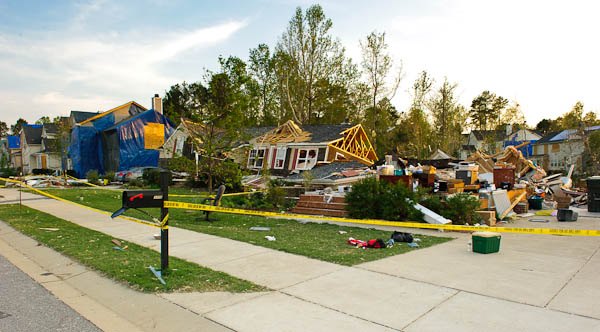 There are times, when if I had those red shoes, I’d smack the heels together until my feet hurt.
There are times, when if I had those red shoes, I’d smack the heels together until my feet hurt.
The longing for home aches deep, a hunger that won’t go away. I’m not talking about the home I live in here that still stands (praise God) 100 feet—if that—from utter devastation. I’m talking about the home that Christ must’ve longed for a million times during His sojourn on this earth; the one where He’s already gone to prepare my place; the one with a river as clear as crystal and where the fruit from the tree of life is ripe and within easy reach (Revelation 22); the one where Almighty God will wipe away every tear from my eyes and “there will be no more death or mourning or crying or pain, for the old order of things has passed away (Revelation 21:4).” And as I sit here, staring at the flecks of insulation all over our yards and roofs and windows and walls—scattered like a blanket of ash—and as I stand on my back porch and look at the hole where two neighbors homes once sat whole and side by side, I am so thankful that He calls from the blinding light of His throne, “I am making everything new (Revelation 21: 5)!”
But before the resurrection came, those who followed Him were devastated. Their lives had been ripped away in an instant, and nothing felt normal or real. They likely wandered, and hid, and they went back to their fishing boats and tried to figure out how to pull a net from the water again and how they ever used to sit by the fire and eat fish in the early morning without Him.
When the tornado came last Saturday and took our neighbors’ homes and ripped and scattered their normal like all this insulation, we were in the Ashe mountain area, watching our children scurry around the yard in the sunshine plucking Easter eggs from the grass and trees.
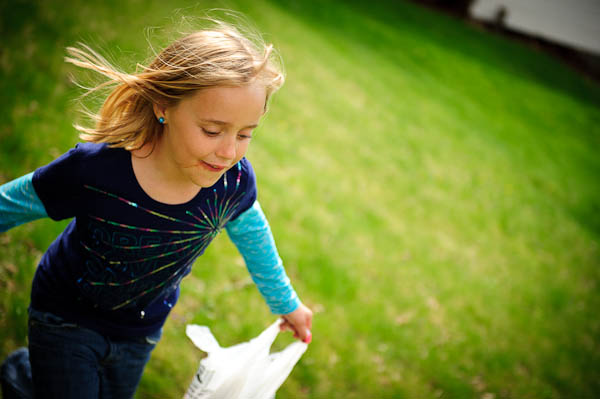 We were staying with Kevin’s side of our family in an old country house that sits just a few yards from a rushing stream.
We were staying with Kevin’s side of our family in an old country house that sits just a few yards from a rushing stream.
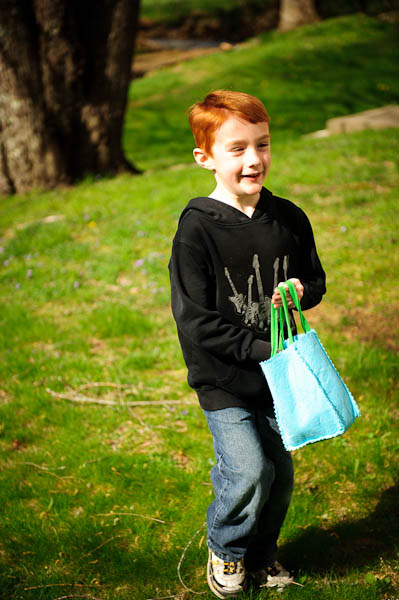 All of the forecasts had said it would be stormy all day there, and we’d expected to be rubbing chilly arms indoors, listening to our children play tag and hide-and-seek.
All of the forecasts had said it would be stormy all day there, and we’d expected to be rubbing chilly arms indoors, listening to our children play tag and hide-and-seek.
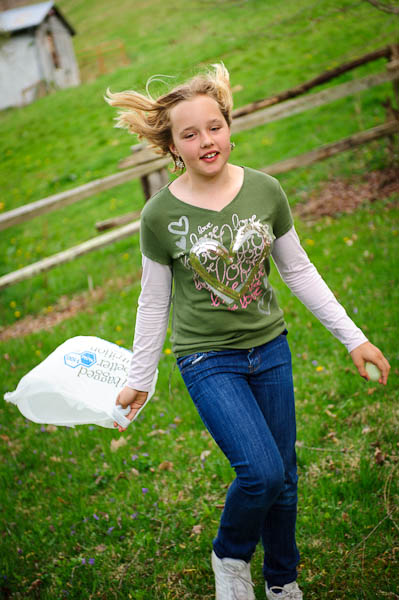 But although the morning had brought a little rain our way, the afternoon felt glorious, warm, enchanting in that beautiful country.
But although the morning had brought a little rain our way, the afternoon felt glorious, warm, enchanting in that beautiful country.
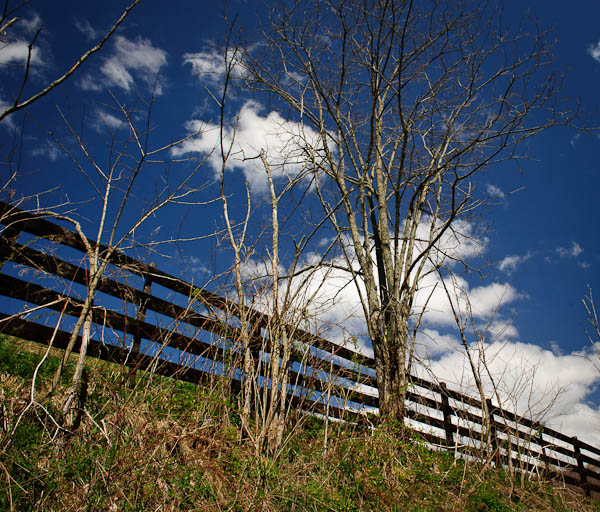 We’d been on a three-mile walk before the Hunt, Riley pushing her baby cousin Cade in his stroller, Kevin lagging behind with his camera, Zoe keeping stride with Brayden, and me enjoying the feel of Adam’s hand in mine.
We’d been on a three-mile walk before the Hunt, Riley pushing her baby cousin Cade in his stroller, Kevin lagging behind with his camera, Zoe keeping stride with Brayden, and me enjoying the feel of Adam’s hand in mine.
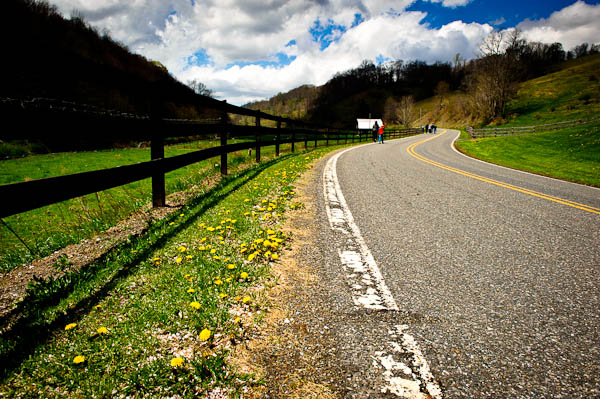 Better still had been the sound of his voice, as we noticed things—everything we could—as we walked. “Horses. I like it horses,” he’d said after a moments pause by the fence to watch them run nearby.
Better still had been the sound of his voice, as we noticed things—everything we could—as we walked. “Horses. I like it horses,” he’d said after a moments pause by the fence to watch them run nearby.
“I like horses, too,” I’d said, smiling.
“And cows,” he commented. “Horses and cows.”
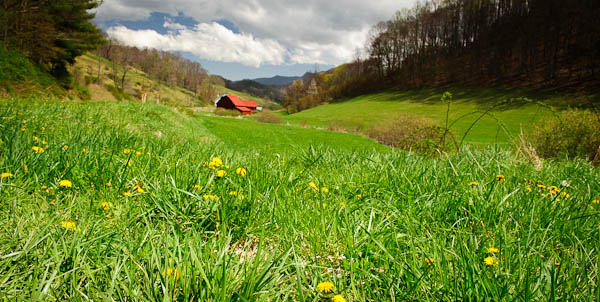 Adam loved the barns, too, old and red and stark in the middle of all those rolling, green hills. It had been a beautiful walk, and I’d alternated talking to my son and to my Father.
Adam loved the barns, too, old and red and stark in the middle of all those rolling, green hills. It had been a beautiful walk, and I’d alternated talking to my son and to my Father.
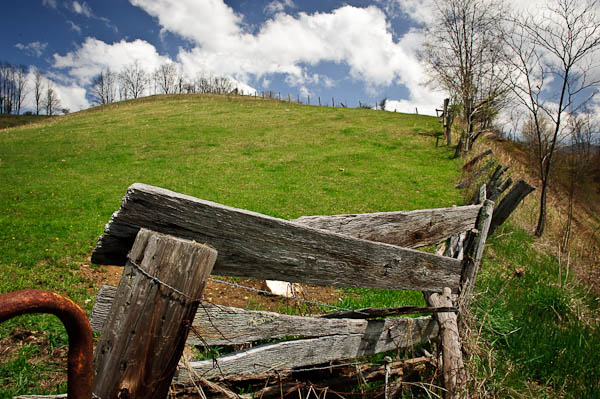 Back at the house, we’d hidden the eggs, laughing about the camouflaged ones that just lay hidden right out in the middle of the grass. Our kids walked past them over and over, until finally Cade found them, with a little help from his Opa. I listened to the laughter, watched them run, and all I could do was smile.
Back at the house, we’d hidden the eggs, laughing about the camouflaged ones that just lay hidden right out in the middle of the grass. Our kids walked past them over and over, until finally Cade found them, with a little help from his Opa. I listened to the laughter, watched them run, and all I could do was smile.
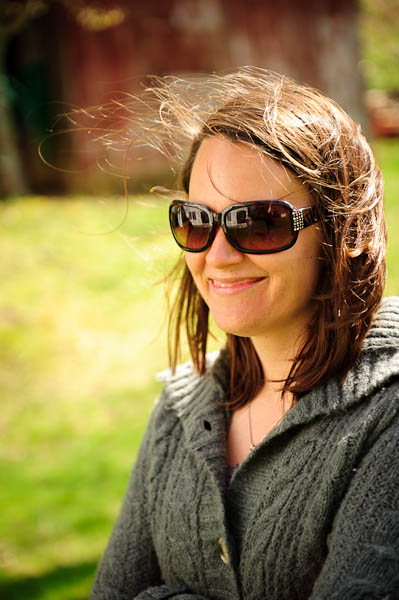 Meanwhile, our neighbors were pushing their frightened children into closets and bathtubs and, in some cases, under the house. They say that the sky wasn’t exactly green, but that everything looked a little too green around them—the moving leaves, the grass. Some of them had been watching the storm develop all day, others were as unaware as I would’ve been until the moment when the pressure changed around them and their ears popped. They said the feeling, and the sound, was excruciating. And as I imagined one family right across the street from us feeling their home moved from its foundation, crawling out the window just before it fell, I saw Riley in my mind, clutching her hands to her hypersensitive ears, screaming like she used to scream about the bees. I saw Adam’s terrified eyes searching my face, aware that I was afraid but not comprehending why. And I could not—still cannot—put into words how thankful I am that instead, my children were far away, noticing horses and cows and barns on rolling hills, counting Easter eggs as they plucked them from the grass.
Meanwhile, our neighbors were pushing their frightened children into closets and bathtubs and, in some cases, under the house. They say that the sky wasn’t exactly green, but that everything looked a little too green around them—the moving leaves, the grass. Some of them had been watching the storm develop all day, others were as unaware as I would’ve been until the moment when the pressure changed around them and their ears popped. They said the feeling, and the sound, was excruciating. And as I imagined one family right across the street from us feeling their home moved from its foundation, crawling out the window just before it fell, I saw Riley in my mind, clutching her hands to her hypersensitive ears, screaming like she used to scream about the bees. I saw Adam’s terrified eyes searching my face, aware that I was afraid but not comprehending why. And I could not—still cannot—put into words how thankful I am that instead, my children were far away, noticing horses and cows and barns on rolling hills, counting Easter eggs as they plucked them from the grass.
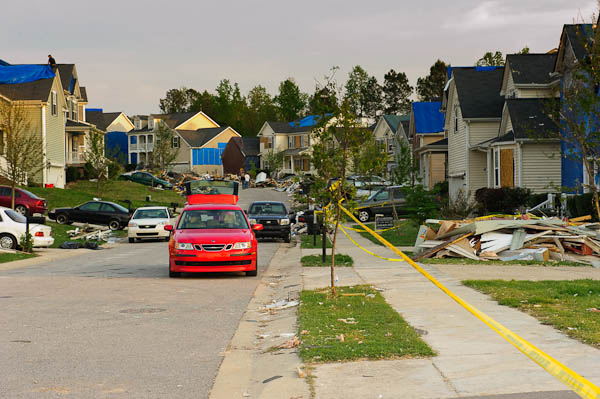 At midnight, Kevin couldn’t sleep.
At midnight, Kevin couldn’t sleep.
He had left the room so as not to wake me, and browsing Facebook, he’d found a post from a neighbor which read something like, “I’m just so thankful that my house is still standing…houses gone…devastation.” In my sleep, I’d felt him missing and opened my eyes in the dark. Just as I stood to find him, he walked in the room, shock written on his face. And after he told me, I stood by a window, staring into the country night, hoping my cell phone signal would be steady enough to let me hear the stunned voice of a neighbor and good friend, relaying to me the horror of the past hours.
On Sunday, we walked around in a fog. Our family took a day trip into Blowing Rock, and we were half there with them and half at home, dragging debris out of the road with the rest of our community. I talked to friends and neighbors on the phone, sent messages, received pictures that took away my breath. Several of our good friends checked on our home, walking inside and out, describing things and sending more pictures. One of our next door neighbors lost half of their home. Their four-year-old is afraid to even be in the neighborhood. We lost some siding and a few shingles. It isn’t even worth mentioning.
As a teenager, I climbed through a tornado-ravaged neighborhood after Hurricane Hugo, gasping at the sight of trees ripped from the ground by the roots, some even plunged right into the center of homes we passed. I remember the stillness after the storm, the odd sound of birdsong as all of us walked through the streets, completely stunned, looking at the ruins of a community. I still remember the way the building—what was then my dad’s office—shook that night while I sat huddled close to my dad, wondering if the walls would stay up. I had seen that kind of war zone—a place completely destroyed by weather. It’s not something you forget, but something that marks and changes you, an event around which you will always mark time.
Tornadoes should also be named. I used to joke about storm-naming as a child, long before I realized that when something like this happens, it isn’t enough just to refer to it as “the tornado.” Storms like this have awful personality, such foreboding and lasting impact that nothing will ever be as it was. Our community grieves. Just like those hollow, dark days after the loss of a loved one, the days here feel odd. Things go on as they always have—school, mail, laundry, appointments, meals—but nothing feels right. It feels like everything should stop for a while to mark the gravity of the event and what it has left in its wake. I have no trouble understanding why there will be complete silence in heaven before the seven trumpets are blown (Revelation 8:1). I also know, that the day that Jesus died and those three excruciating days he was in that tomb, no one who knew Him—no one who believed Him to be the promised Messiah—felt normal even breathing. I know they felt hollow, confused, not quite sure what to do with themselves. And I wonder if they realized that they too longed for home, the place that could only be home because He’d died.
When we went to sleep in the mountains on Sunday night, I drifted off with two thoughts. “It’ll feel good to be home…I need to be home” and “I hurt for those who no longer have a home to go home to.” Monday morning, Zoe walked in my room and said, “Mom, we need to go home. We need to get back so that we can figure out how to help people.” She spoke my heart. And since we’ve been home, we feel as we are truly—the inadequate servants of an Almighty, loving, holy God who is always, always good. We do what we can, but we know there’s nothing we can do or say that will take away the pain and loss our neighbors have suffered.
I’m so thankful that the story of Christ didn’t end at the cross. It didn’t end with His devastated disciples, His grieving mother with her torn heart, or the hollow, empty confusion of those who’d given Him their lives and left it all behind to follow and trust in Him. Three days later, God raised Him from that tomb and He appeared to them, so many of them that the witnesses abounded. They watched Him eat. They touched the holes in His hands, His sides, His feet. The redemption they witnessed—the resurrection they knew had happened—was enough that they were martyred with the truth on their lips. When you’ve been emptied and destroyed and then powerfully resurrected, the truth means so much that you’ll die proclaiming it.
And one thing I know, even in this time, when I live in a tarp city and watch my neighbors standing on the ruins of their homes trying to salvage something. My heart is broken for them. But even as we grieve together, I know that God will redeem what has happened here. Indeed, He is already redeeming it. Over and over and over again, before, through, and after the cross, God has shown His love in the same way: redemption. He makes everything new. People whose faces we knew, whom we waved at in passing, we now know by name. Every day, there are people grilling in front of less damaged homes, passing out food to neighbors and laying steady hands on their backs. People have come from other neighborhoods and even other states, bringing water, food, clothing, gift cards, cleaning supplies, tarps, shovels, their strength, and hope. In the aftermath of all this destruction, something new, something more lasting has come: Love. Unity. None of us want to leave the neighborhood, even for a short trip. Whatever we are, whatever we’re doing, we’re in it together. It’s not anything we can see, but it’s the greatest reality of all.



